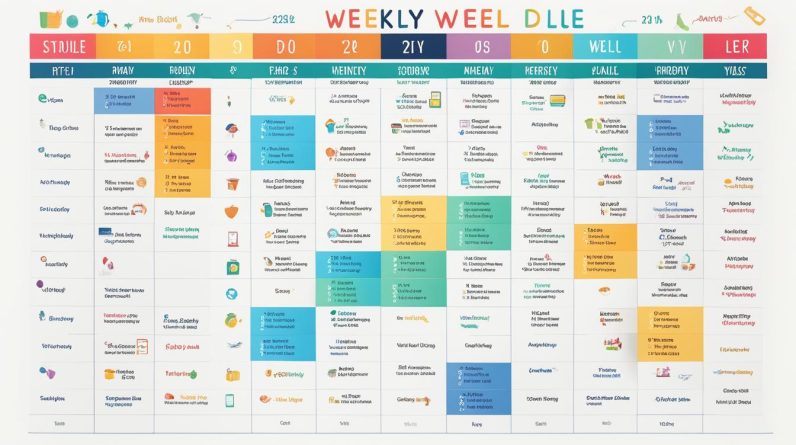Homeschooling in Wisconsin provides families with the freedom to educate their children in a way that aligns with their beliefs and values. This comprehensive guide will walk you through the laws, resources, and tips necessary to start your homeschooling journey in Wisconsin. From understanding the legal requirements to accessing curriculum and finding support groups, this guide will equip you with the information you need to confidently educate your child at home.
Key Takeaways:
- Discover the benefits and freedom of homeschooling in Wisconsin.
- Understand the legal requirements and compliance for homeschooling.
- Find resources and curriculum options to personalize your child’s education.
- Connect with homeschool support groups and organizations in Wisconsin.
- Explore extracurricular activities and programs available for homeschoolers.
Understanding Wisconsin’s Homeschooling Laws
Wisconsin homeschooling laws are among the most reasonable and lenient in the country. To comply with these laws, parents must file the PI-1206 Homeschool Report with the Wisconsin Department of Public Instruction, affirming their compliance with the law. The report includes requirements such as providing 875 hours of instruction each academic year and offering a sequentially progressive curriculum in fundamental subjects such as reading, language arts, mathematics, social studies, science, and health. It is essential to familiarize yourself with the specific legal requirements to ensure compliance.
Wisconsin homeschooling laws provide families with the freedom to educate their children at home while ensuring that certain educational standards are met. By filing the PI-1206 Homeschool Report, parents can demonstrate their commitment to adhering to these laws. This report serves as a way to affirm that the homeschooling program will provide the necessary educational elements, such as the required hours of instruction and a comprehensive curriculum covering essential subjects.
By understanding the legal requirements, homeschooling parents in Wisconsin can confidently navigate their educational journey and provide their children with a high-quality education. These laws aim to strike a balance between flexibility and accountability, allowing families to personalize their child’s education while ensuring that essential educational standards are met.
Let’s take a closer look at some of the key legal requirements for homeschooling in Wisconsin:
1. Filing the PI-1206 Homeschool Report
To comply with Wisconsin’s homeschooling laws, parents are required to file the PI-1206 Homeschool Report with the Wisconsin Department of Public Instruction. This report serves as a declaration of intent to homeschool and ensures that parents understand and agree to abide by the legal requirements.
2. Providing 875 Hours of Instruction
Wisconsin law stipulates that homeschooling parents must provide a minimum of 875 hours of instruction each academic year. This requirement ensures that children receive an adequate amount of educational instruction comparable to traditional schooling.
3. Offering a Sequentially Progressive Curriculum
Parents are responsible for developing and implementing a sequentially progressive curriculum in fundamental subjects such as reading, language arts, mathematics, social studies, science, and health. This curriculum should ensure that children receive a comprehensive and well-rounded education.
It is crucial to familiarize yourself with the complete set of homeschooling laws in Wisconsin to ensure compliance. By doing so, you can confidently embark on your homeschooling journey, knowing that you are meeting the necessary legal requirements while providing your child with a quality education.
| Wisconsin Homeschooling Laws | Description |
|---|---|
| PI-1206 Homeschool Report | A report filed with the Wisconsin Department of Public Instruction as a declaration of intent to homeschool and compliance with legal requirements. |
| 875 Hours of Instruction | Parents must provide a minimum of 875 hours of instruction each academic year. |
| Sequentially Progressive Curriculum | A comprehensive curriculum covering fundamental subjects to ensure a well-rounded education. |
Getting Started with Homeschooling in Wisconsin
Now that you have a good understanding of Wisconsin’s homeschooling laws, it’s time to take the next step and start your homeschooling journey. Here’s a guide on how to start homeschooling in Wisconsin:
- Research the legal requirements: Familiarize yourself with the legal requirements outlined in the previous section to ensure compliance. Being aware of these regulations will help you navigate the process smoothly.
- File the PI-1206 Homeschool Report: To officially start homeschooling, you need to file the PI-1206 Homeschool Report with the Wisconsin Department of Public Instruction. This report signals your intent to homeschool and must be submitted each year by October 15th.
- Create a schedule: Develop a daily schedule that suits your child’s needs and your family’s routine. Having a structured schedule will help create a sense of routine and consistency in your homeschooling journey.
- Choose a curriculum: Consider different homeschooling curriculum options that align with your educational goals and your child’s learning style. There are various curriculum choices available, including traditional textbooks, online programs, and hands-on approaches.
- Establish a learning environment: Set up a dedicated learning space within your home where your child can focus on their studies. This area should be free from distractions and stocked with the necessary materials and resources.
“The key to a successful homeschooling journey is to stay organized, create a conducive learning environment, and choose a curriculum that suits your child’s learning style.”
Example Schedule:
| Time | Activity |
|---|---|
| 8:00 AM – 9:00 AM | Mathematics |
| 9:00 AM – 10:00 AM | English Language Arts |
| 10:00 AM – 10:15 AM | Break |
| 10:15 AM – 11:00 AM | Science |
| 11:00 AM – 12:00 PM | Social Studies |
| 12:00 PM – 1:00 PM | Lunch |
| 1:00 PM – 2:00 PM | Physical Education |
| 2:00 PM – 3:00 PM | Elective (e.g., Art, Music, Coding) |

Remember, every homeschooling journey is unique, and it may take time to find what works best for you and your child. Stay open-minded, embrace flexibility, and enjoy the freedom to educate your child in a way that aligns with their needs and interests.
Finding Homeschool Curriculum and Resources
Homeschooling provides the opportunity to choose curriculum and resources that align with your child’s learning style and interests. Wisconsin homeschoolers have the freedom to select their own curriculum, whether it be traditional textbooks, online programs, or a combination of various resources. Additionally, there are many online platforms, local libraries, and homeschool conventions where parents can access a wide range of resources and materials to enhance their homeschooling experience. Take advantage of these resources to create a well-rounded and engaging curriculum for your child.
The Importance of a Customized Curriculum
One of the main advantages of homeschooling is the ability to tailor your child’s education to their specific needs. By choosing your own curriculum, you can personalize their learning experience, cater to their interests, and address any learning gaps or challenges they may have. Whether your child excels in certain subjects or requires additional support, homeschooling allows you to adapt the curriculum to their unique learning style.
Options for Homeschooling Curriculum
When it comes to homeschool curriculum, the possibilities are endless. Consider the following options:
- Traditional textbooks: Many homeschooling families opt for traditional textbooks, which offer structured lessons and exercises across a variety of subjects.
- Online programs: Online curriculum providers offer interactive lessons, quizzes, and assessments, making learning engaging and accessible.
- Unit studies: Unit studies integrate multiple subjects into a cohesive theme, allowing for deep exploration of a specific topic.
- Homeschool co-ops: Joining a homeschool co-op gives you access to shared resources and curriculum, as well as the opportunity for collaborative learning with other families.
Accessing Homeschool Resources
To find homeschool resources in Wisconsin, take advantage of the following:
- Online platforms: Explore websites that offer homeschooling resources, such as lesson plans, worksheets, and educational games.
- Local libraries: Visit your nearest library to access a wide range of books, educational materials, and even online databases.
- Homeschool conventions: Attend homeschool conventions where you can browse curriculum options, attend workshops, and connect with other homeschooling families.

By tapping into these resources, you can provide your child with a comprehensive and engaging homeschooling experience.
Joining Homeschool Support Groups and Organizations
Homeschooling can sometimes feel isolating, but fortunately, there are numerous homeschool support groups and organizations throughout Wisconsin that provide a sense of community and valuable resources for homeschooling families. These groups offer opportunities for socialization, networking, and sharing ideas with other homeschooling parents. Joining a support group can provide emotional support, practical advice, and opportunities for collaborative learning activities. Look for local homeschool support groups and organizations in your area to connect with like-minded families and gain support on your homeschooling journey.
Finding Support and Community
“Connecting with other homeschooling families can be a game-changer. When you find a supportive community, you’ll not only have the chance to share experiences, but you’ll also gain valuable insights and resources to enhance your homeschooling adventure.” – Emily Johnson, homeschooling parent
Joining homeschool support groups can provide a sense of belonging and reduce the feelings of isolation that sometimes come with homeschooling. These groups typically organize regular meetups, field trips, and social events for homeschooling families to connect and build relationships. It’s an excellent opportunity for both children and parents to make friends and find support in their homeschooling journey.
Benefits of Homeschool Support Groups and Organizations
Being part of a homeschool support group offers a multitude of benefits:
- Opportunities for socialization and playdates with other homeschooling children
- Access to a network of experienced homeschooling parents who can provide guidance and advice
- Sharing of educational resources and curriculum recommendations
- Collaborative learning activities, such as group projects and field trips
- Parent support and encouragement, especially during challenging times
By joining a homeschool support group, you can tap into a wealth of knowledge and experience while fostering a supportive network that understands the unique challenges and joys of homeschooling.
Local Homeschool Organizations and Associations
In addition to support groups, there are several homeschool organizations and associations in Wisconsin that provide a wide range of resources and services to homeschooling families. These organizations often offer:
- Workshops and conferences on homeschooling topics and techniques
- Legal and legislative advocacy for homeschooling rights
- Access to discounts on educational materials and programs
- Information on local homeschooling events and activities
| Homeschool Organizations and Associations in Wisconsin | Website |
|---|---|
| Wisconsin Parents Association (WPA) | https://www.homeschooling-wpa.org/ |
| Homeschoolers of Wisconsin (HOW) | https://www.homeschool-life.com/sysfiles/member/index_public.cfm?memberid=894 |
| Christian Homeschoolers of Wisconsin (CHOW) | https://www.chowhomeschoolers.org/ |
These organizations often provide a wealth of resources and support for homeschooling families. Explore their websites to learn more about their services, events, and how to join.

Homeschool Programs and Extracurricular Activities in Wisconsin
Homeschooling in Wisconsin doesn’t mean missing out on programs and extracurricular activities available to traditionally schooled students. Many homeschool programs and co-ops offer classes, field trips, and other educational activities specifically for homeschoolers. Additionally, homeschoolers are typically welcomed to participate in activities offered by public schools, such as sports teams, clubs, and musical ensembles. Explore the various homeschool programs and extracurricular activities available in your area to provide your child with well-rounded educational experiences beyond the core curriculum.
Participating in homeschool programs allows your child to engage with other homeschoolers and learn in a collaborative and structured environment. These programs often offer specialized courses taught by experienced educators, providing opportunities for your child to delve deeper into specific subjects of interest. Whether it’s a science lab, art class, or music workshop, homeschool programs in Wisconsin cater to diverse educational needs and interests.
In addition to formal homeschool programs, there are a plethora of extracurricular activities that homeschooled students can join. From sports teams to community service clubs, these activities foster socialization, teamwork, and personal growth. To find extracurricular opportunities for your child, consider local community centers, libraries, and organizations that offer programs designed for homeschool students.

Engaging in extracurricular activities not only enriches your child’s educational experiences but also provides opportunities for them to make friends, build character, and develop new skills.
Many public schools in Wisconsin have embraced homeschooled students and allow them to participate in various activities, giving your child access to a wider range of opportunities. Public schools often open their doors to homeschoolers for sports, clubs, and performances, providing a chance to interact with peers in a traditional school setting.
By taking advantage of homeschool programs and extracurricular activities, you can provide your child with a well-rounded education that goes beyond the traditional classroom. These opportunities not only enhance their knowledge and skills but also foster social connections and personal growth.
Homeschooling Tips and Strategies
Homeschooling requires careful planning, organization, and flexibility. Here are some tips and strategies to make your homeschooling journey successful:
- Establish a daily routine and schedule to provide structure and consistency. This helps create a sense of normalcy and sets clear expectations for both you and your child.
- Set clear academic goals and expectations for your child. Define what you want them to achieve and create a roadmap to track their progress. This helps keep you focused and ensures your child stays on track.
- Utilize a variety of teaching methods and learning resources to keep lessons engaging. Incorporate hands-on activities, educational games, online resources, and field trips to make learning fun and interactive.
- Take advantage of local educational resources such as museums, libraries, and community programs. These can provide valuable learning opportunities and enhance your child’s understanding of various subjects.
- Stay connected with other homeschooling families through support groups and online communities. This allows you to share ideas, resources, and support, and provides a sense of community for both you and your child.
- Continuously assess your child’s progress and adjust your teaching methods as needed. Regularly evaluate how well your child is grasping the material and adapt your approach to ensure their success.
- Maintain a balance between academic instruction and hands-on experiences. Incorporate extracurricular activities, field trips, and real-life experiences to provide a holistic education that goes beyond textbooks.
By following these tips and strategies, you can create a fulfilling and effective homeschooling experience for your child.
Testimonials
“Establishing a routine and setting clear expectations has been crucial in our homeschooling journey. It keeps us organized and allows us to make the most of our time.”
“The flexibility of homeschooling allows us to explore different teaching methods and resources. It keeps our lessons engaging and tailored to our child’s learning style.”
| Tips | Benefits |
|---|---|
| Establish a routine and schedule | Provides structure and consistency |
| Set clear academic goals | Keeps you focused and tracks progress |
| Utilize a variety of teaching methods | Makes learning fun and interactive |
| Take advantage of local educational resources | Enhances understanding of various subjects |
| Stay connected with other homeschooling families | Provides support and community |
| Continuously assess your child’s progress | Ensures their success |
| Maintain a balance between instruction and experiences | Creates a holistic education |
Homeschooling and Legal Requirements
Homeschooling is a legal and recognized form of education in Wisconsin. The state’s homeschooling laws are designed to ensure that children receive a quality education while allowing parents the flexibility to tailor their child’s education to their unique needs and beliefs.
Under Wisconsin law, parents who choose to homeschool their children must file a statement of enrollment with the Wisconsin Department of Public Instruction at the beginning of each school year. This statement certifies that the parents will provide the required hours of instruction and a sequentially progressive curriculum.
By complying with these legal requirements, parents can protect their homeschooling rights and provide their children with a well-rounded education. Familiarize yourself with the specific legal requirements to ensure compliance and maintain peace of mind throughout your homeschooling journey in Wisconsin.
Advantages of Homeschooling in Wisconsin
Homeschooling offers numerous advantages for families in Wisconsin. By choosing to educate your child at home, you can provide them with a personalized education tailored to their individual needs and learning style. This personalized approach allows your child to learn at their own pace, explore their interests, and focus on areas where they need additional support.
One of the greatest benefits of homeschooling is the flexibility it provides. You have the freedom to create a customized curriculum that aligns with your child’s interests and values. Unlike traditional schooling, where the curriculum is predetermined, homeschooling allows you to choose resources and materials that best suit your child’s unique learning preferences.
Homeschooling also offers opportunities for hands-on and experiential learning. Whether it’s exploring nature, conducting science experiments, or visiting museums, you can incorporate real-world experiences into your child’s education. This experiential learning enhances their understanding and fosters a deeper connection to the subjects they are studying.
Another advantage of homeschooling is the increased parental involvement and one-on-one attention your child receives. As the primary educator, you have a front-row seat to their education and can provide individualized guidance and support. This personalized attention helps to build a strong parent-child relationship and creates a nurturing learning environment.
With homeschooling, you have the freedom to incorporate your personal beliefs and values into the curriculum. This allows you to teach your child according to your family’s values, instilling important life lessons and moral principles. Whether it’s focusing on character development, faith-based teachings, or cultural heritage, homeschooling enables you to shape your child’s education in alignment with your beliefs.
Homeschooling also strengthens family bonds and relationships. Spending more time together allows for deeper connections and shared experiences. Siblings can collaborate and learn from one another, and parents can engage in meaningful conversations and activities with their children. Homeschooling provides a unique opportunity for families to grow and learn together.
Another important advantage of homeschooling is the protection it offers your child from negative influences or bullying. In the safe and supportive environment of home, your child can focus on their studies without distractions or harmful peer pressures. This helps them to develop a positive self-esteem and a love for learning.
Lastly, homeschooling allows for individualized support for children with special needs or learning differences. You can tailor the curriculum and teaching methods to meet your child’s specific needs, providing them with the resources and accommodations necessary for their success. Homeschooling empowers you to give your child the specialized attention they require.
Overall, homeschooling in Wisconsin provides families with a unique educational experience that is flexible, personalized, and tailored to their individual needs. From customized curriculum to increased parental involvement and a focus on values, homeschooling offers numerous advantages for both parents and children.
Comparing Homeschooling Advantages
| Advantages | Explanation |
|---|---|
| Personalized Education | A tailored approach based on individual needs and learning style. |
| Flexibility | The freedom to create a customized curriculum and learning schedule. |
| Hands-on Learning | Opportunities for experiential learning and real-world exploration. |
| Parental Involvement | Increased one-on-one attention and guidance from parents. |
| Incorporating Personal Beliefs | The freedom to teach according to personal values and beliefs. |
| Enhanced Family Bonding | Stronger relationships and shared experiences among family members. |
| Protection from Negative Influences | A safe environment free from distractions and harmful peer pressures. |
| Individualized Support | Customized resources for children with special needs or learning differences. |
Homeschooling and Socialization
Socialization is often a concern for parents considering homeschooling. However, homeschoolers in Wisconsin have ample opportunities for socialization. In addition to participating in homeschool support groups, co-ops, and extracurricular activities, homeschooled children can engage in community programs, sports teams, and clubs. Homeschooling also provides opportunities for socialization with a diverse range of people, including people of different ages and backgrounds, fostering well-rounded social skills.
One of the misconceptions about homeschooling is that children will be isolated and lack social interaction. However, homeschoolers in Wisconsin have a vibrant community where they can connect, interact, and grow together.
“Homeschooling can provide unique socialization opportunities that traditional schooling often cannot. Homeschooled children often interact with individuals of different age groups, allowing them to develop strong communication skills and the ability to adapt to diverse social environments.” – Sarah Thompson, homeschooling parent in Wisconsin
In addition to homeschool support groups, which offer a sense of community and support for both parents and children, homeschooled children can participate in extracurricular activities such as sports teams, music lessons, art classes, and more. These activities not only provide opportunities for socialization but also allow children to explore their interests and develop their talents.
Homeschooling also encourages socialization in real-world settings. Parents can take advantage of community programs, volunteer opportunities, and field trips to expose their children to different environments and engage with a variety of people. This fosters empathy, adaptability, and the ability to communicate effectively with individuals from diverse backgrounds.
Furthermore, homeschoolers often have the flexibility to interact with people of various ages, including younger siblings, older relatives, and family friends. This diverse social network contributes to their overall social development and broadens their perspective.
Benefits of Socialization in Homeschooling
The socialization opportunities within homeschooling provide several advantages for children:
- Individualized Peer Interactions: Homeschooling allows children to interact with peers on a more personal level, fostering meaningful relationships and reducing peer pressure.
- Positive Role Models: Homeschoolers have the opportunity to interact with positive adult role models, such as mentors, tutors, and community leaders, enhancing their social development.
- Flexible Group Dynamics: In homeschool co-ops and support groups, children can engage in collaborative learning with peers of different ages, developing important skills like teamwork and leadership.
- Enhanced Communication Skills: Homeschooled children often have more opportunities to engage in discussions and debates, honing their communication and critical thinking skills.
Overall, homeschooling provides a rich and diverse socialization experience for children in Wisconsin. By actively seeking out social opportunities and participating in community activities, homeschooled children can develop valuable social skills, build meaningful relationships, and thrive in various social situations.
Conclusion
Homeschooling in Wisconsin offers families the freedom to provide a personalized and tailored education for their children. With the understanding of the legal requirements, access to appropriate curriculum and resources, and connection with support groups, homeschooling can be a rewarding and successful educational choice.
By homeschooling in Wisconsin, you have the flexibility to create a learning environment that nurtures your child’s individual needs and interests. You can establish a curriculum that aligns with your family’s values and beliefs, ensuring a well-rounded education that goes beyond traditional classroom settings.
Embrace the opportunities that homeschooling provides for educational exploration and hands-on experiences. Take advantage of the abundant resources and support available to Wisconsin homeschoolers, such as local libraries, online platforms, and homeschool conventions. Engage with homeschool support groups and organizations to connect with other like-minded families and gain valuable insights and advice.
Embark on your Wisconsin homeschooling journey with confidence, knowing that you are not alone. With dedication, commitment, and a passion for your child’s education, homeschooling can empower you to provide a personalized and enriching learning experience that will shape their future success.
FAQ
What are the legal requirements for homeschooling in Wisconsin?
Wisconsin homeschooling laws require parents to file the PI-1206 Homeschool Report with the Wisconsin Department of Public Instruction, affirming compliance with laws such as providing 875 hours of instruction each academic year and offering a sequentially progressive curriculum in fundamental subjects.
How do I start homeschooling in Wisconsin?
To start homeschooling in Wisconsin, research and understand the legal requirements, file the PI-1206 Homeschool Report with the Wisconsin Department of Public Instruction by October 15th each year, create a schedule, choose a curriculum, and establish a suitable learning environment for your child.
Where can I find homeschool curriculum and resources in Wisconsin?
Wisconsin homeschoolers have the freedom to select their own curriculum. You can find homeschool curriculum and resources through online platforms, local libraries, and homeschool conventions, which offer a wide range of materials to enhance your homeschooling experience.
How can I connect with other homeschooling families in Wisconsin?
Joining homeschool support groups and organizations provides a sense of community and valuable resources. These groups offer socialization opportunities, networking, and collaborative learning activities. Look for local homeschool support groups and organizations in your area.
Are there homeschool programs and extracurricular activities available in Wisconsin?
Yes, many homeschool programs and co-ops offer classes, field trips, and educational activities specifically for homeschoolers. Homeschoolers can also participate in activities offered by public schools, such as sports teams, clubs, and musical ensembles.
What are some tips for successful homeschooling in Wisconsin?
Tips for successful homeschooling in Wisconsin include establishing a daily routine and schedule, setting clear academic goals, utilizing a variety of teaching methods and resources, taking advantage of local educational resources, staying connected with other homeschooling families, and maintaining a balance between academic instruction and hands-on experiences.
Are there any legal requirements for homeschooling in Wisconsin?
Yes, homeschooling is a recognized form of education in Wisconsin. Parents must file a statement of enrollment each school year, certifying compliance with the required hours of instruction and a sequentially progressive curriculum.
What are the advantages of homeschooling in Wisconsin?
Homeschooling in Wisconsin allows for personalized education, flexibility in curriculum and schedule, hands-on and experiential learning, increased parental involvement, incorporation of personal beliefs and values, enhanced family bonding, protection from negative influences, and individualized support for children with special needs or learning differences.
How do homeschoolers in Wisconsin socialize?
In addition to participating in homeschool support groups and co-ops, homeschoolers in Wisconsin can engage in community programs, sports teams, clubs, and other extracurricular activities. Homeschooling provides opportunities for socialization with a diverse range of people, fostering well-rounded social skills.






